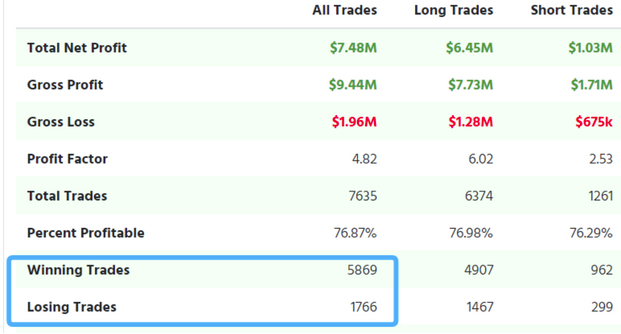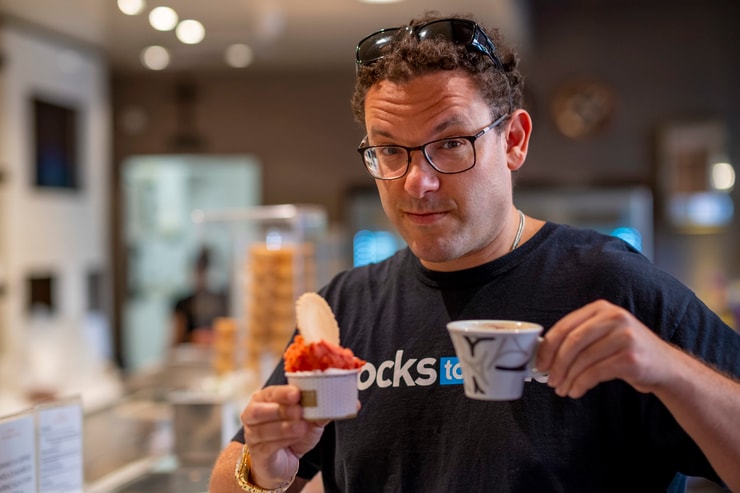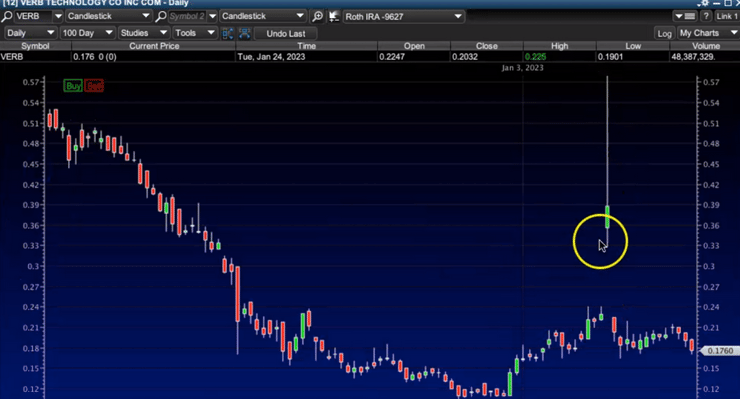I get it. Trading can be a lonely endeavor. And chat rooms can be a great place for traders to connect with like-minded individuals. When used correctly, a chat room can be an asset.
But unfortunately, most newbies use chat rooms the wrong way, ultimately costing them.
The Dark Side of Chat Rooms

Many chat rooms are in bed with brokers. They’ll throw out “plays” simply to get you to trade more. My guess is they have some sort of arrangement with these brokers that pays them based on your trading volume.
In other words, some of these chat rooms want you to trade more, regardless if the setup makes sense. They don’t care if you make money or not…they just want you to churn your account, making their partners happy—the brokers they’re in bed with.
But that’s not the only reason to be skeptical of chat rooms…it gets worse.
Some chat rooms call out plays because their friends are long and want to use you to create liquidity…allowing them to dump their positions and profit off the pump.
Remember Atlas Trading?
Those guys are wearing ankle bracelets now…

And let’s not forget the cryptic chat rooms. You know, the ones who only highlight plays after the fact, then hop on social media, bragging about how easy the play was and how they crushed it.
Meanwhile, they offer zero transparency.
That’s why I love Profit.ly…
You can see all my trades…the good…the bad…and the ugly.
Chat rooms can be great when people share information you can take to make your own decisions. But if you want to become an elite trader, you can’t rely on chat rooms or alerts, for that matter, for your trade ideas.
You’ve got to become the best version of yourself. Not someone who thinks they can succeed by copying and pasting someone else’s ideas.
That’s why I’m so proud of my millionaire students. Take Mark Croock, for example. He has taken what I’ve taught him and applied it to trading options.
He has banged out five-figure winning trades this year utilizing his options strategy. Yet, I don’t trade options at all.
While Mark credits me for developing his skills as a trader, he took those skills and developed a strategy that works for him.
Matt Monaco, another of my millionaire student, found success trading NFTs…something I’ve not traded.
Jack Kellogg has made over eight figures in trading profits…He does a lot of his damage as a short-seller. Yet I rarely, if ever, these days, short stocks.
You see, these guys aren’t waiting for me to tell them to buy this or sell that…they’ve got their own ideas…their own methods of trading.
They took what I taught them…refined their process, and created guidelines.
There’s no magic formula in trading. Nothing works all of the time. But if you study the past, you’ll notice some patterns repeat. At the end of the day, we’re just trying to make educated guesses on how a stock will react.

Despite $7.5 million in trading profits…I’m a much better teacher than I am a trader. And with 32 millionaire students, the results speak for themselves.
Based on my long track record…I can confidently tell you the patterns I teach my student’s work. They work for me, but they might not work for you. That’s why you must refine what I teach to fit your trading style.
The Level You Must Strive For

You won’t crack the seven-figure club by copying and pasting trades from a chat room. You’ve got to become your own trader.
And that starts with developing a trader’s mindset.
Often in trading it’s not the markets who beat us, it’s ourselves. Newbies come into this game thinking that if they can just learn the patterns and setups they’ll instantly find success.
Wrong.
You also must become aware.
Here are some questions that you can ask yourself that can help you make better trading decisions:
- Am I focused on trading today? Right now I’m traveling and working on my charity. My mind is not 100% on trading. This awareness tells me to trade smaller and trade less.
- What is the market telling me? One of the worst things you can do is pick a fight with the market. The market is wrong. This stock should be trading higher. You need to cut that kind of thinking out, accept when you’re wrong, and swallow your pride. Right now, the market is telling me that huge spikers aren’t following through. To me, that means taking profits faster. For example, check out this chart in the ticker symbol VERB.
The stock popped on the news that it was fighting illegal short-selling…and then it faded.
- What is my trading telling me? You want to press it when the market is hot, and you’re trading well. And lay off when it’s choppy or going through a losing streak. So far this year, I haven’t had a lot of big wins. However, I did have a nice $6K winner in the ticker symbol GTII (risked $30,863.25 in capital). My trading is telling me to stay patient and wait for solid setups. In January, stocks were on fire, but they’ve now cooled off. For my style of trading, I want to trade less. However, this could be your time to shine if you’re a short-seller. That’s why you have to answer these questions yourself.
Bottom Line

Trading is not a one size fits all thing. If you want to become an elite trader, understand that you won’t get there by following shady chat rooms and alert services. I’ll teach you the skills for trading. But to take it to the next level, you must develop your own trading style that works for you. It starts by building awareness around you and asking the right questions.



Leave a reply